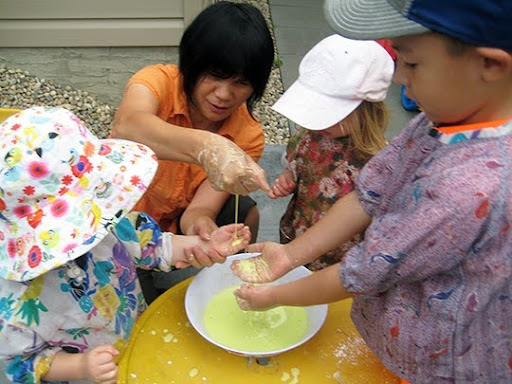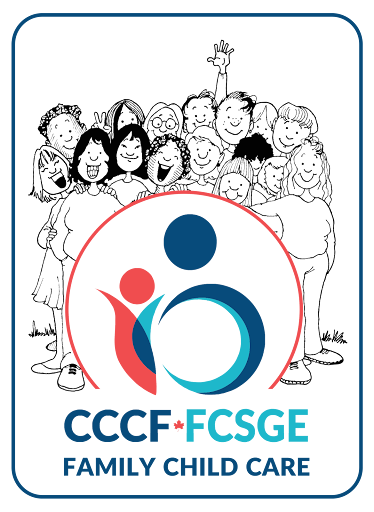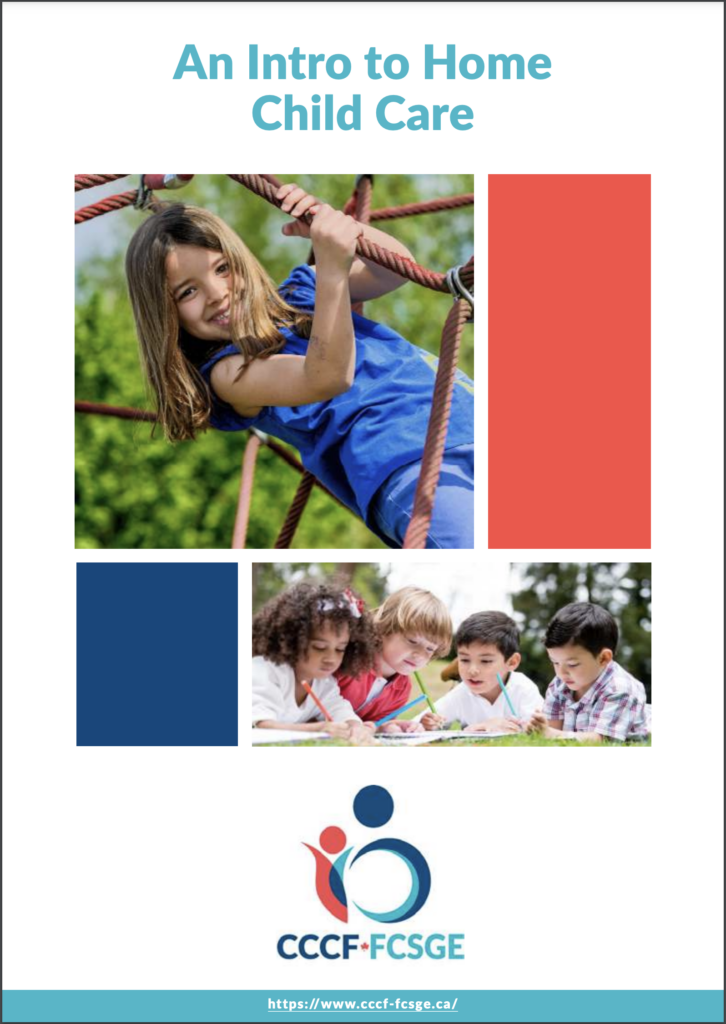The importance of a homelike atmosphere and child-centred activities are central to this care.
Family/Home Child Care
Family Child Care, also known as Home Child Care, can provide a nurturing and personalized option for families seeking safe, reliable, high-quality care for their children in a home-like setting. Its unique characteristics set it apart from other types of care.


The unique characteristics of the physical environment in Family Child Care:
- Home setting in the provider’s home
- Neighbourhood/community involvement
- Consistent caregiver throughout the day
- Mixed-age groups offer unique opportunities for children
The unique characteristics of the physical environment in Family Child Care:
- Home setting in the provider’s home
- Neighbourhood/community involvement
- Consistent caregiver throughout the day
- Mixed-age groups offer unique opportunities for children

HOME CHILD CARE Articles

CCCF expands online professional learning opportunities
The Canadian Child Care Federation (CCCF) is proud to announce an exciting expansion of our online professional learning opportunities. In response to feedback from our members across the country, we are committed to offering more accessible, high-quality, and affordable training that meets the evolving needs of early learning and child care professionals. In addition to
Professionalism in Home Child Care
Home child care is a vital service often underappreciated, but your commitment to professionalism can change that narrative. Establishing a professional image doesn’t mean sacrificing the warm, home-like environment children thrive in. Here’s how you can strike the right balance:
Code of Ethics in Home Child Care
As a family child care provider, adhering to a Code of Ethics is paramount to maintaining the highest standards of practice. The following principles serve as a guide to promote ethical conduct in your profession:
Setting Attainable Goals in Home Child Care
Setting goals is a powerful tool for enhancing your family child care business. Follow these six steps to ensure your goals are not only achievable but also aligned with your vision:
Care for the Caregiver
It is important to our well-being that we feel we have some control over our lives and that we are continuing to change, to learn, in fact, to grow as a person. One way to achieve that sense of growth is to continue, throughout our lifetime, to set personal goals for ourselves. Achieving goals that
Conducting Effective Interviews
Interviewing families is a crucial step in establishing successful partnerships in your family child care business. This process is not only about showcasing your childcare space but also opening your home and family life to potential clients. It’s a significant decision that will impact both your family’s life and the families you serve.
Family Child Care Training Online
Introducing our 10 module, online course with a virtual community of practice and facilitator. It is intended for individuals who are currently or who are interested in becoming family child care providers in Canada. It’s an introduction for those new to the sector. Experienced providers will find the opportunity to review and reinforce their knowledge and the sharing of experiences with others, helpful and worthwhile.
Participants could include:
- Individual providers
- Networks of caregivers
- Home visitors, child care coordinators or others involved in supporting family child care work
- Agencies, associations and other child care and community organizations
- Community colleges and other educational services
For more information about the next opportunity to take the course, email fcc@cccf-fcsge.ca
Perspectives in Home Child Care
Home Child Care Resources
So you want to care for other people’s children in your home?
Download this free e-book to find out what’s involved and where to start.
- An Intro to Home Child Care (English)
- Isang Panimula sa Pangangalaga ng Bata sa Tahanan (Tagalog)
- ਹੋਮ ਚਾਈਲਡ ਕੇਅਰ ਦੀ ਜਾਣ-ਪਛਾਣ (Punjabi)
- Une introduction au service de garde à l’enfance (French)
- 家庭兒童托兒介紹 (Cantonese)









